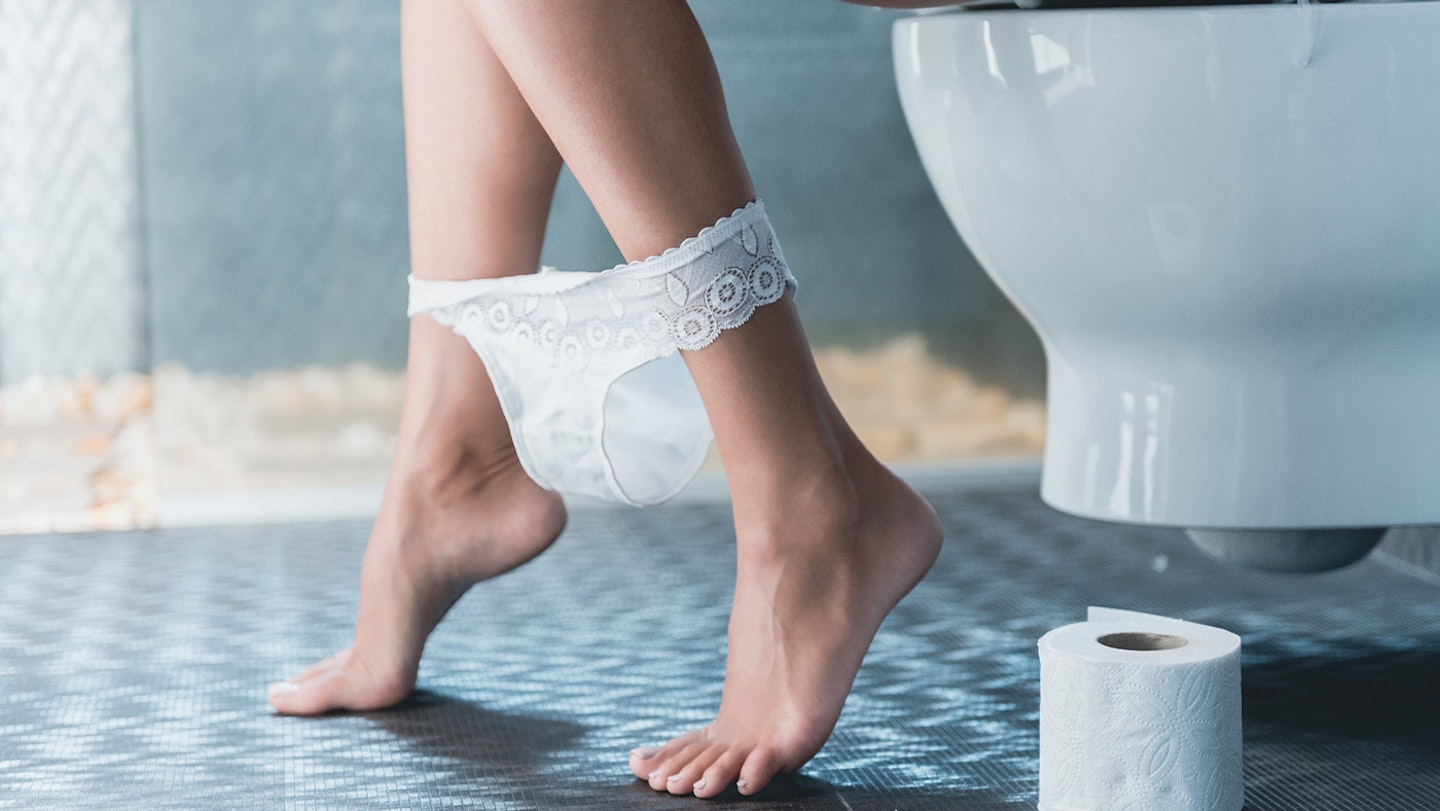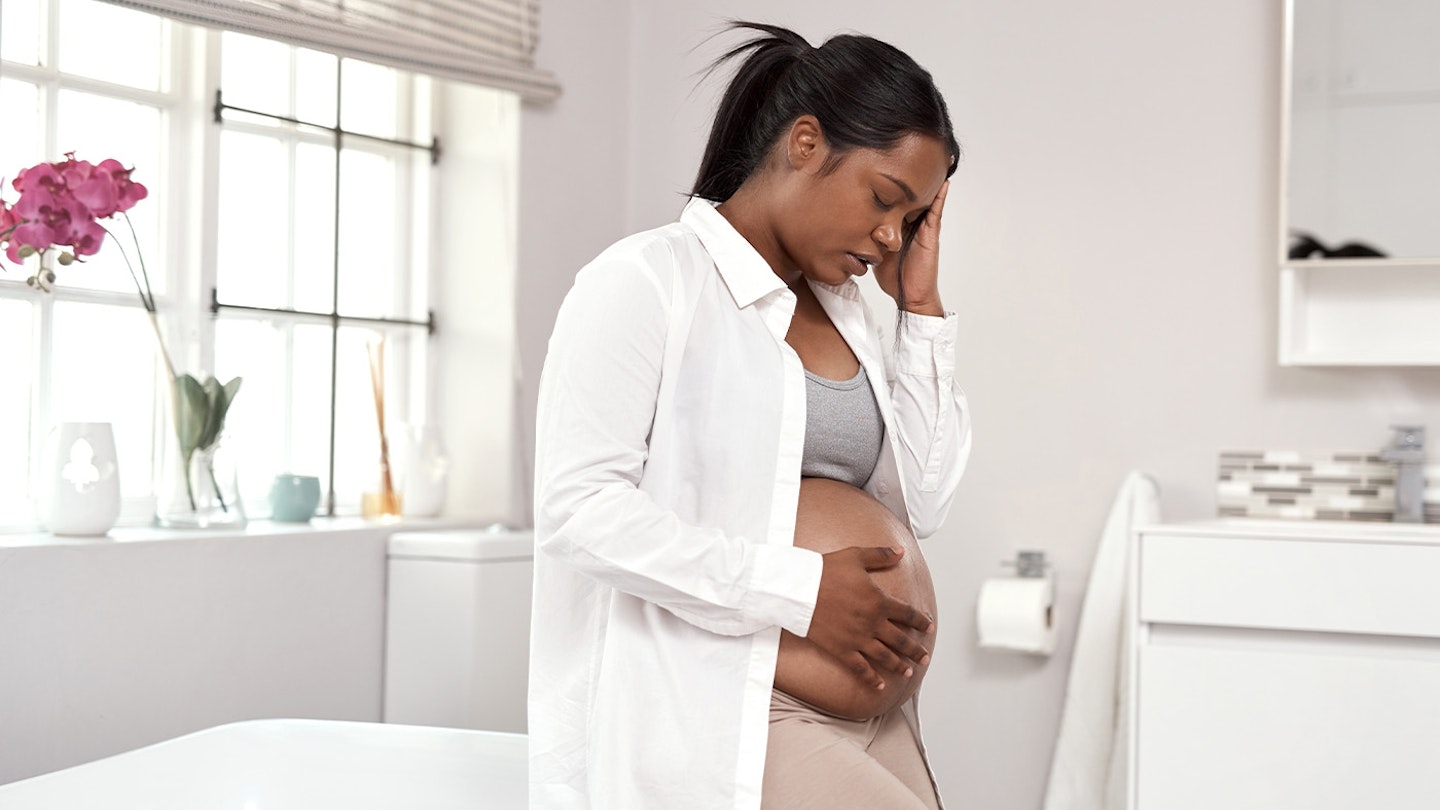It's never nice to be struck down with a bug that causes a 'bad tummy' but when you're pregnant and already uncomfortable, diarrhoea presents an extra challenge.
In pregnancy, the combination of changing hormones, reduced space, and the increased womb movements and a kicking baby can really ramp up gut shenanigans, and whilst constipation is often discussed, diarrhoea does also rear its ugly head for some women.
If you're pregnant and suffering from diarrhoea, you may worry about what you've eaten or if there's a problem with your pregnancy. However, diarrhoea in pregnancy is usually a side effect of the significant hormonal changes taking place in your body. Hormones like prostaglandins can affect gut motility, leading to changes in bowel habits.
We spoke to Baby and Parenting expert Rachel Fitz-Desorgher, who shares her advice and guidance for pregnant women experiencing diarrhoea.
Is diarrhoea in pregnancy normal?
Bowel changes in pregnancy are very normal, especially in the early stages, due to hormonal changes. These changes can cause your digestive system to slow down, often leading to constipation, and sometimes it can cause diarrhoea.
If you've previously suffered from IBS in the past, you may also find your IBS symptoms change in pregnancy. The causes are a combination of lifestyle changes, the increase in hormones and womb activity, and the reduction in space for the intestines.
What causes diarrhoea in pregnancy?
Sitting in the middle of the pregnant body is 9 metres of intestine, which week by week gets pushed further and further to the edges of its natural home, to make way for the newest member of your family, so it’s no wonder women commonly experience changes in the way their gut works.
In your first trimester, hormonal shifts, new vitamins or subtle changes to your diet can stir up your digestion. In the second trimester, diarrhoea is less common but can still occur from tummy bugs, food sensitivities, or general digestive shifts. If you're also throwing up, it might be a viral infection, so if symptoms stick around or you have a fever, call your doctor. By the third trimester or any time after 36 weeks, diarrhoea can be a sign that labour is near, as your body gets ready for delivery! If you're experiencing a fever, severe cramps, or dehydration, get in touch with your midwife or GP.
Common causes why some women might have looser bowel movements when pregnant:
• A change to a healthier, more fibre-rich diet
• An increase in stress
• Some medications, such as iron tablets
The gut is also susceptible to being knocked about - more often than not, it responds by shutting up shop, and women experience constipation. Still, for others, the bowel irritation from a kicking baby can cause ‘the runs’.
Likewise, when the womb contracts, it can affect the bowels in the same way as it might during the early days of a woman’s menstrual period by triggering diarrhoea. This is noticeable when the contractions ramp up at the start of labour, when some women can’t stay off the loo for long.

Could it be a tummy bug?
Getting food poisoning or a tummy bug in pregnancy is still possible, so it's wise to discuss any bowel changes with your midwife. They can ensure that the diarrhoea is not a sign of anything more worrying. Tablets to stop diarrhoea if it's a tummy bug should always be prescribed by a doctor and never just bought over the counter in pregnancy. If the diarrhoea is due to a tummy bug, it is sensible to stay hydrated, rest as much as possible and eat small, light meals until the symptoms disappear.
Is diarrhoea in pregnancy anything to worry about?
Diarrhoea rarely poses a threat to the pregnancy, but you should let your midwife or GP know if you have ongoing loose bowels. Call the labour ward if you're experiencing diarrhoea alongside contractions - especially if you are not due.
When will diarrhoea in pregnancy stop?
The loose stools caused by normal pregnancy changes tend to come and go and cause no problems apart from discomfort. If iron tablets are to blame, then it is worth chatting to your GP or midwife to see if the dose or brand of medication can be changed.
Sometimes, a change to a healthier diet can also upset the bowels. This generally settles down as the guts get used to the increase in fruit, veg, and fibre. If it continues to be a problem, it might be gentler on the gut to go back a step or two and reduce fibre intake—just a little—while the tummy adapts before gradually increasing it again.
Treatment for diarrhoea in pregnancy
If it is food poisoning, your doctor will prescribe medicine. If not, some general tips to treat diarrhoea in pregnancy include:
Stay hydrated. Drink plenty of water or even some low-sugar squash. Try to sip on a large glass regularly rather than have a whole glass in one go. Avoid caffeine or sugary drinks.
Diet. The BRAT diet is often referred to here. It involves eating bananas, rice, apple sauce, and toast—food that is bland and gentle on your stomach. You should avoid milk and dairy, as well as greasy, spicy, or high-fibre foods.
Rest. Diarrhoea takes it out of you—in more ways than one, so get plenty of rest and try to stay at home.
When to see a doctor
Most cases of diarrhoea clear up without the need for treatment or medications. Drinking plenty of fluids and eating bland food may help settle your stomach and prevent dehydration.
Call your doctor if you have some of these symptoms:
• your diarrhoea lasts more than a few days
• you’re dehydrated
• feeling dizzy and weak
• you have intense abdominal or rectal pain
• you pass bloody or black stools
• you have a high temperature
• you notice reduced movement from your baby
• you have little or no urination or dark-coloured urine
Can diarrhoea cause a miscarriage?
Because womb contractions can cause diarrhoea, it is not unusual to have diarrhoea during a miscarriage and to then think that loose bowels and gut cramping caused the miscarriage. The reality is the other way around - the womb contractions which happen when a woman loses her baby can cause gut spasm and diarrhoea.
If the due date is a long way off and a woman has diarrhoea alongside contractions, it is always essential to call the labour ward for advice in case it is an early sign of premature labour. It could simply be the head engaging with the pelvis and will settle down again in due course, so it isn't always a cause for concern, but it's better to get a professional opinion.
About the expert
Rachel Fitz-Desorgher is an active birth teacher, parenting consultant and author of Baby Skin To Skin, with over 30 years of experience working as a midwife and parenting consultant. Based in Berkshire, Rachel has appeared on numerous radio programmes, discussing various issues from infant feeding to smacking to humanist parenting.
About the author
Lorna White is the Products Editor for Mother&Baby. After running the Yours magazine website, specialising in content about caring for kids and grandchildren, Lorna brought her expertise to Mother&Baby in 2020. She has a keen interest in various topics surrounding all things motherhood and has a wide range of experienced medical experts and professionals at her fingertips.
